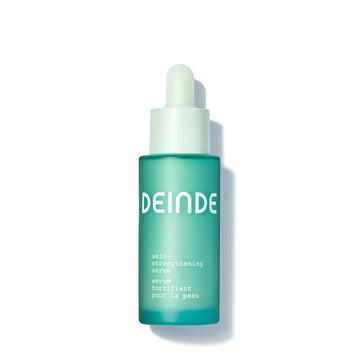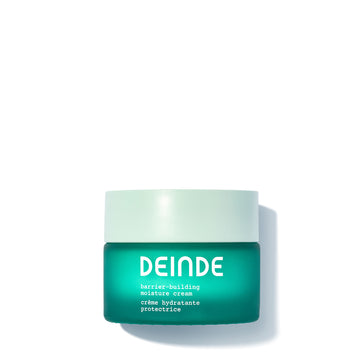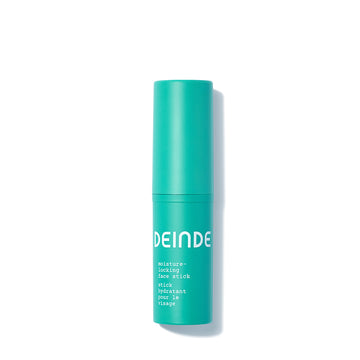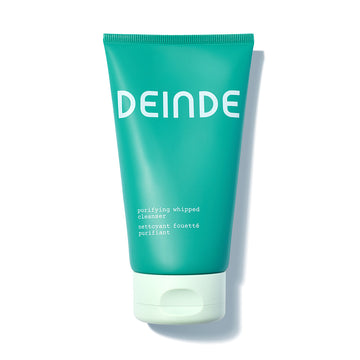
What Does Safe Skincare Mean?
Our skin is a remarkable barrier that plays a critical role in protecting us from external elements. While it is resilient and resistant, it’s not completely impermeable. When we apply products to our skin, we have the capacity to absorb those ingredients into the bloodstream if the molecules are small enough.
In the U.S., the Food and Drug Administration (FDA) requires cosmetics to be “safe” but do not require companies to test their formulations before bringing products to market. Essentially, manufacturers are not required to label harmful chemicals or ingredients in a formulation. Responsibility is given to whomever is selling a product — this creates a grey space of what is actually considered safe.
There is an expectation for consumers to make informed decisions and conduct due diligence when selecting which products are right for their skin and lifestyle — creating opportunities for brands to communicate their formulations as they see fit with minimal regulation, looking for common certifications and buzzwords to connect with consumers.
DEINDE exists to question everything: from how biotech can transform the skincare industry, to the importance of focusing on sustainability at an ingredient level, to prompting larger conversations on what safe skincare actually means. Let’s dig into it.
Skin Safe x DEINDE
Creating products formulated for sensitive skin is central to DEINDE’s product development process. A biotech-led approach to skincare formulation allows DEINDE to eliminate potentially harmful allergens and irritants from products while being hyper-vigilant about ingredient quality and efficacy. In our eyes, developing ingredients in a sterile, highly regulated lab environment is the best way to assure ingredients are both safe and clean. There’s a level of quality control, testing, and consistent ingredient purity that simply isn’t feasible when ingredients are produced in the wild.
Breaking Down Beauty Buzzwords
Language has power. In the beauty realm, words that refer to ingredient quality are often used interchangeably, even when they have significantly different meanings and connotations. To make informed choices — and to ensure that language is being used correctly — we’ve dug into the meaning of each of these common, yet sometimes misunderstood terms.
→ Natural Skincare
Refers to skincare products and practices that primarily leverage ingredients derived from nature. Think plant extracts, essential oils, minerals, etc. The idea behind natural skincare is to minimize the use of synthetic or artificial fragrances, chemicals, and preservatives.
Natural can be a tricky term to define as ingredients that may be harmful, like ethanol (known to dry skin), is technically natural. While natural in theory is a good term to refer to, the ambiguity in its phrasing isn’t necessarily descriptive when assessing formulation efficacy or its (potentially negative) impact on the skin.
DEINDE recommends: Viewing biotech as a natural solution. Biotech leverages the best of nature, without the harm or risk of irritation.
→ Safe Skincare
The safety and well-being of the consumer is the priority when considering safe skincare. At a minimum, safe skincare products are formulated with ingredients that have undergone rigorous testing and evaluation to ensure there are no harmful or irritating substances. Products that fall under this term should never contain toxins, allergens, or questionable chemicals (think parabens, phthalates, synthetic fragrances — we’ll get into these later). To ensure the validity of safe skincare claims, products usually are certified or endorsed by 3rd parties.
DEINDE recommends: Prioritizing safe skincare to protect the health and wellbeing of skin — it reduces the risk of reactions, allergies, and long-term damages brought on by harmful and irritating ingredients. DEINDE has aligned with SkinSafe and National Eczema Association (NEA) to ensure the safety of our formulations and includes a sensitive skin panel in every HRIPT conducted on our products.
→ Organic
Organic products contain ingredients that have undergone meticulous review to ensure they lack any harmful or irritating inputs that may be harmful for skin. When organic is used in context to food ingredients, it refers to the agricultural practices used to make the end product. For skincare products, organic is related to the sourcing and production of ingredients, rather than the final formulation.
DEINDE recommends: Prioritizing the organic label specifically for food sources. DEINDE finds the organic label for skincare a bit too ambiguous. As our goal is to reduce the reliance on plant ingredients by leveraging biotech, we find more meaning in the quality of each ingredient in a formulation, not just the end product.
→ Clean Skincare
Similar to safe skincare, clean skincare focuses on the safety and well-being of the user. At a minimum, clean skincare products are composed of ingredients that have undergone thorough testing and assessment to ensure formulations don’t contain toxins, allergens, and questionable chemicals. This term is used interchangeably with non-toxic.
DEINDE recommends: Reimagining how we collectively define ‘clean.’ For DEINDE, we see biotech as the next generation of clean.
As an industry, we’re moving in the right direction. There are large-scale discussions about ingredient transparency, a collective desire for non-irritating products, and an understanding that formulations are often the safest when primarily developed in a lab environment. Tools like Skin Safe, Skin Deep and Think Dirty bring rankings and information of hundreds of products to our fingertips, allowing for more transparency to consumers.
A Refresher on Skincare's Worst Offenders
Endocrine Disruptors — Parabens + Phthalates
Parabens (ex. methylparaben) are used as synthetic preservatives while phthalates are common fragrance stabilizers. Both can be absorbed through the skin and there has been debate about their link to endocrine disruptors, impacting hormonal balance.
Synthetic Fragrances
Products with exceptionally strong fragrances may look to synthetic ingredients to increase olfactory appeal. Synthetic fragrances are linked to irritating skin and causing allergic reactions. These fragrances are often a proprietary blend.
Sulfates
Used to create lather in cleansers and shampoos, sulfates (sodium lauryl sulfate [SLS] and sodium laureth sulfate [SLES]) are known for being harsh, stripping skin of natural oils, and damaging the skin barrier function. Sulfates are especially important for those with sensitive skin to avoid.
Mineral Oil
Mineral oil, derived from petroleum, is incorporated in skin care products because of its moisturizing properties. However, it is known to clog pores and contribute to acne breakouts because it is comedogenic.
What Are the Most Common Certifications?
Next time you pick up your essentials in the beauty aisle, we encourage you to keep an eye out for external certifications. These third-party seals of approval are representative of an often complex and long-term review of a product and brand formulation practices. Below are some of the most common certifications you might see in the wild:
-
MADE SAFE → This seal ensures that products are free from potentially harmful ingredients. Through a rigorous evaluation process that includes ingredient screening, a MADE Safe certification guarantees the absence of harmful substances such as parabens, phthalates, and synthetics
- EWG VERIFIED® → The Environmental Working Group (EWG) verified skincare products don’t include potentially harmful ingredients (parabens, phthalates, synthetics). This skin safe badge is given once a product goes through a comprehensive evaluation that includes ingredient screening, a safety assessment, a review of transparency and labeling, an examination of manufacturing practices, and third-party laboratory testing to validate product safety
-
NEA Seal of Acceptance → The National Eczema Associate (NEA) Seal of Accecptance ensures that a product has gone through a meticulous evaluation to meet the highest standards of safety for individuals with eczema and sensitive skin concerns
- Leaping Bunny → A globally recognized cruelty-free certification specific to cosmetic and personal care products. This seal means that the brand doesn’t conduct any animal testing at any stage of product development.
- USDA Organic → This is one of the most widely recognized standards for organic products. To achieve this certification, a product must contain at least 95% organic ingredients and must be free of herbicides, synthetic pesticides, and GMO’s. Because organic products aren’t exposed to harmful chemicals, they are considered skin safe. Note that certified organic and organic are not the same label — if a product has a claim stating that it is “made with organic ingredients,” only 70% of formulation must be organic










